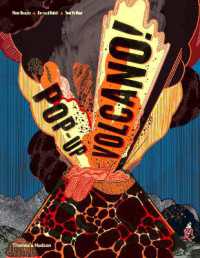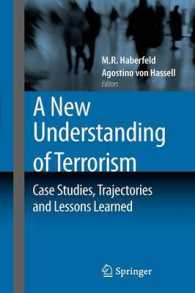- ホーム
- > 洋書
- > 英文書
- > History / World
Full Description
Beginning in late 1945, the United States, Britain, China, Australia, France, the Netherlands, and later the Philippines, the Soviet Union, and the People's Republic of China convened national courts to prosecute Japanese military personnel for war crimes. The defendants included ethnic Koreans and Taiwanese who had served with the armed forces as Japanese subjects. In Tokyo, the International Military Tribunal for the Far East tried Japanese leaders. While the fairness of these trials has been a focus for decades, Japanese War Criminals instead argues that the most important issues arose outside the courtroom. What was the legal basis for identifying and detaining subjects, determining who should be prosecuted, collecting evidence, and granting clemency after conviction? The answers to these questions helped set the norms for transitional justice in the postwar era and today contribute to strategies for addressing problematic areas of international law.
Examining the complex moral, ethical, legal, and political issues surrounding the Allied prosecution project, from the first investigations during the war to the final release of prisoners in 1958, Japanese War Criminals shows how a simple effort to punish the guilty evolved into a multidimensional struggle that muddied the assignment of criminal responsibility for war crimes. Over time, indignation in Japan over Allied military actions, particularly the deployment of the atomic bombs, eclipsed anger over Japanese atrocities, and, among the Western powers, new Cold War imperatives took hold. This book makes a unique contribution to our understanding of the construction of the postwar international order in Asia and to our comprehension of the difficulties of implementing transitional justice.
Contents
Acknowledgments Note on Names, Spelling, and Terminology List of Abbreviations Introduction 1. Defining War Crimes and Creating Courts 2. Investigation and Arrest 3. In Court: Indictment, Trial, and Sentencing 4. Dilemmas of Detention and the First Misgivings 5. Shifting Mood, Shifting Location 6. Peace and Article 11 7. Japanese Pressure Mounts 8. Finding a Formula for Release 9. The Race to Clear Sugamo Conclusion Notes Bibliography Index








